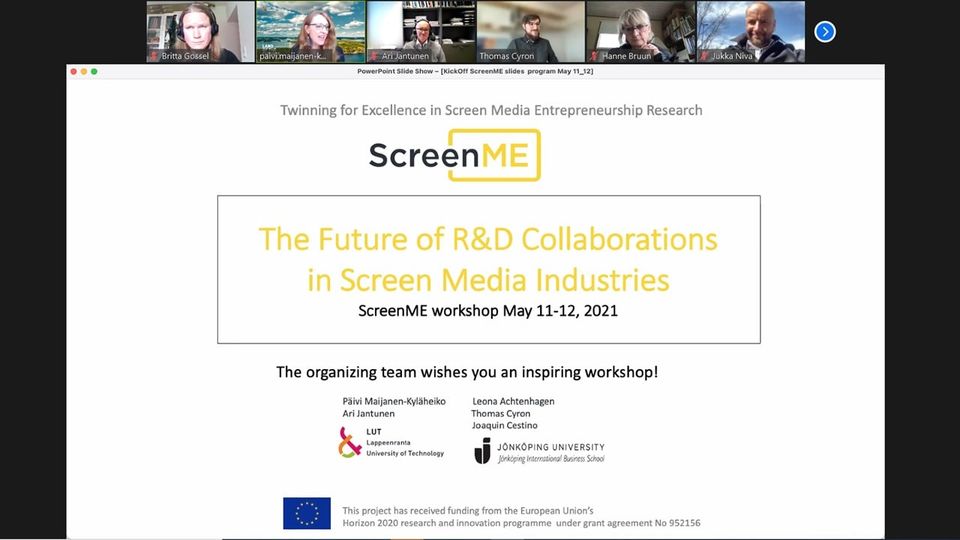“Networked world is beautiful. And it destroys the traditional journalistic processes”
The quote by Jukka Niva well expresses the challenges and beauty of the networked society. It, as concluded at the ScreenME-Net workshop on industry-academia collaboration May 11-12, is one of the themes that media scholars should address with their research. The journalists claimed that traditional ways of creating content are not applicable to the bottom-up social movements, where it is often unclear who is responsible and whom to turn to for the credible information.
The workshop on “The Future of R&D Collaborations in Screen Media Industries” was organized by LUT School of Business and Management and Jönköping International Business School. The purpose of the workshop was to meet and talk with media professionals about their current “hot topics”, what they expect from media researchers, and how researchers can address these expectations. The invited speakers of the workshop were media professionals from both Finland and Sweden: Jukka Niva, Head of Yle News Lab at the Finnish Broadcasting Company; Anton Albiin from the Swedish Game Industry (Association for Swedish game developers); Aino Heikkonen, Journalist from the Finnish regional media company Keskisuomalainen; Henrik Selin, Strategist at SVT (Swedish public television broadcaster) and Elina Kukkonen, Senior Vice President from Communications and Brand at the Alma Media Corporations. Finland.
Many of the presented issues and questions relate to new technologies, for example, how AI will change media production or how online media communities challenge journalists’ work processes. The technology also requires new competences and business models, which is a big challenge in smaller media companies with fewer resources. Furthermore, disinformation, responsibility, and sustainability are currently big questions for media companies. In addition to the need for openness and responsibility in the journalistic content, media companies need to prove more concretely their sustainable achievements both economically, environmentally, and socially in terms of doing good and enhancing democracy in the society. The overarching challenge expressed by the presenters to us researchers was to address “big questions” in the society, i.e. questions that media companies do not have time and resources to explore.
The first ScreenME-Net workshop was a promising start for further collaboration and development of research ideas. It was also an excellent start for building a vibrant ScreenME-Net community. Many thanks to the organizing team: Päivi Maijanen and Ari Jantunen from LUT University and Leona Achtenhagen, Thomas Cyron, and Joaquin Cestino from Jönköping International Business School.


